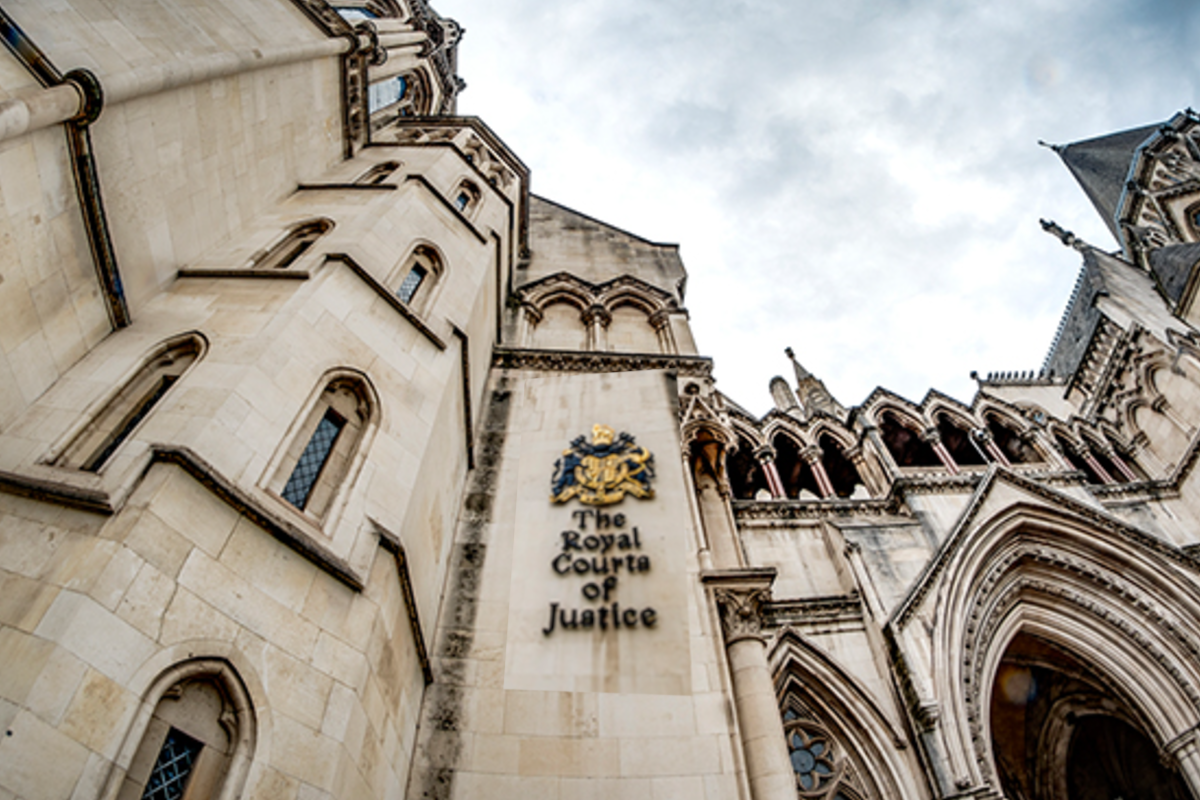High Court clarifies defamation law in Paisley v Linehan

How statements made on social media are judged under the law
A recent High Court ruling in the defamation case of David Paisley v Graham Linehan has provided significant clarity to the complex boundaries of defamation law. I, together with my colleague Paul Greenberg and Counsel Mark Henderson, was pleased to represent David Paisley in this case, which involved important questions about reputation, the role of public interest, and how statements made on social media are judged under the law.
Background of the case of Paisley v Linehan
This case, which was focused on how statements made on social media are judged under defamation law, arose after a series of tweets by the well-known screenwriter and comedian, Graham Linehan, directed towards journalist and activist, David Paisley. Graham Linehan is best known for his work on hit sitcoms such as Father Ted, Black Books, and The IT Crowd, which have garnered a significant following both in the UK and internationally. In recent years, however, Linehan has also become a controversial figure due to his outspoken views on social issues, particularly in relation to transgender rights. His views have led to heated online exchanges and public debates, which formed the backdrop for this particular case.
David Paisley, on the other hand, is a respected journalist and activist, known for his investigative work and involvement in various social justice causes. He has contributed to several prominent publications and often focuses on issues of equality, human rights, and transparency in public institutions. The dispute between Linehan and Paisley centred on allegations made by Linehan in a series of tweets, which implied that Paisley was dishonest and engaged in misconduct. Given the high-profile nature of both individuals, the case attracted considerable public attention, particularly regarding the issue of where free speech ends and defamation begins.
Court's ruling on meaning and serious harm
In the preliminary trial, the High Court was tasked with establishing the meanings of Linehan's statements and determining whether they caused "serious harm" to David Paisley's reputation, as required under the Defamation Act 2013. The Court concluded that the statements portrayed Paisley as dishonest and lacking integrity. Importantly, it found that the comments were capable of causing serious harm—a crucial hurdle for any defamation case in England and Wales. The judge’s determination of serious harm is particularly noteworthy, as it underscores the high standard that must be met to bring a successful defamation claim. The concept of "serious harm," introduced by the Defamation Act 2013, aims to filter out trivial claims and ensure that only genuinely damaging statements proceed to court. In this case, the Court found that Linehan's statements had the potential to significantly damage Paisley's reputation, particularly given the wide reach of social media and Linehan's influence as a public figure. This aspect of the ruling highlights the responsibility of individuals with large online followings when making statements about others.
Implications of the case for free speech and social media
One of the notable aspects of the judgment is how the Court approached the context of social media. The rapid nature of platforms like Twitter ("X") often blurs the line between opinion, satire, and outright falsehood. Unlike traditional forms of media, social media posts are often made in the heat of the moment, without the editorial oversight or fact-checking that typically accompanies published articles. This case demonstrates that, while spirited debate is encouraged, public figures are still protected against false statements that could unjustly damage their reputation. The ruling reinforces that the courts will carefully assess context, but defamatory claims cannot hide behind humour, sarcasm, or heated exchanges.
The Court acknowledged that while Twitter is a platform where hyperbole and exaggeration are common, this does not give users carte blanche to make damaging and false statements about others. The judgment serves as an important reminder that the legal standards for defamation apply just as much online as they do offline and that individuals must exercise caution when making statements that could harm someone's reputation. The ruling also touches upon the balance between free speech and the protection of reputation. Free speech is a cornerstone of democratic society, and the courts are often careful to ensure that legitimate expressions of opinion are not stifled. However, this case highlights that there are limits to what can be said, particularly when statements cross the line into defamation. It is crucial for individuals, especially those with a platform, to ensure that their statements are based on facts and are not misleading or damaging to others without justification.
What is the liability of Substack administrator for defamatory comments made by other users
The decision also allowed us, as lawyers for David Paisley, to add claims in relation to the comments made by users on various online platforms, including Substack. Some of these comments had been deleted, while others remained intact, seemingly with the permission of Graham Linehan. The Court's decision highlighted that it is not enough for an administrator of a Substack to simply reprimand users when their comments cross the line into defamation. Rather, the administrator has both the power and the duty to actively moderate their Substack.
Failure to do so could result in being held responsible for the defamatory content posted by users. The ruling makes it clear that administrators must not turn a blind eye to potentially defamatory content. By allowing harmful statements to remain, even passively, an administrator can be seen as endorsing such comments. In this case, it was noted that Linehan had left several comments intact that contributed to the serious harm caused to David Paisley's reputation, suggesting implicit approval of those statements.
The Court ruling suggests that platform owners and administrators must take proactive measures to moderate content to avoid liability. Simply telling users off or issuing warnings is insufficient when dealing with defamation. This expansion of the claims reinforces the principle that individuals who host and facilitate online discussions have a significant responsibility to manage the content effectively. The case continues, as we work to ensure that these standards of accountability are upheld, protecting the reputation of those unfairly targeted by defamatory remarks. The implication is that the owner or publisher of a Substack could then be held liable for the comments (This resonates with an already established liability of Facebook administrators to comments posted on their thread on their Facebook Page).
The Court in this case considered the wider impact of these comments when assessing serious harm, acknowledging that the interconnected nature of online content can increase the severity of reputational damage. The judgment therefore serves as a reminder that individuals and content creators must exercise care not only in their original posts but also in how their content is presented and engaged with on platforms like Substack. The responsibility for avoiding defamatory content does not end with the author; those who amplify or endorse such content may also find themselves at legal risk.
When expressions of opinion can become defamatory - a warning for all journalists
An important aspect of the ruling involved the distinction between expressions of opinion and defamatory statements, particularly in the context of journalists and public commentary. The reasoning provided by the judge made it clear that not all statements about someone's personality or the quality of their actions can automatically be considered expressions of opinion. The judge stated:
"One reason why I have rejected the Defendant's case, in respect of this publication and others, that the statements complained of are expressions of opinion, is that I do not accept his apparent premise. He appears to suggest that statements about someone's personality or the quality of their actions are (or perhaps are inherently likely to be) expressions of opinion. But very many allegedly defamatory statements will concern the claimant's personality or the quality of their conduct. That in itself will not suffice to render the statement an expression of opinion."
The authorities on defamation law demonstrate that even highly value-laden terms can convey factual allegations depending on the context. The judge reasoned that it is critical to assess whether the reasonable reader would understand the statement as a matter of established fact or as a subjective view of the writer. The context in which these statements are made plays a key role in determining this distinction. Furthermore, the judge acknowledged the challenges that journalists and writers may face, particularly when writing about the same subject repeatedly.
There is a tendency for opinions expressed in earlier articles to evolve into shorthand formulations that readers of later pieces perceive as assertions of established fact. However, the judge emphasised that each individual statement must be considered in its proper context. Simply repeating a statement that was once an opinion does not protect the writer if the current version of the statement comes across as factual in nature. This clarification serves as a warning to journalists and commentators that the line between opinion and defamation can blur over time, especially when similar claims are repeated. It highlights the importance of being clear when expressing an opinion and ensuring that it does not morph into an assertion of fact that could be deemed defamatory.
Why the preliminary ruling in the case of Paisley v Linehan matters
This decision marks an important moment for both defamation law and the boundaries of public commentary. It underscores the point that online platforms are not a free-for-all where reputation can be attacked without consequence. For journalists, comedians, and anyone participating in public debate, David Paisley v Linehan serves as a reminder of the responsibility to ensure that statements about others are accurate and do not unfairly malign their character.
Given that social media has become a primary means of communication and information sharing, the implications of this ruling are far-reaching. The case highlights the importance of accountability in online discourse and the potential legal consequences of making defamatory statements. It also provides a framework for understanding how the courts will interpret and apply defamation law in the context of social media, where the lines between fact, opinion, and satire are often blurred.
If you need further information about defamation law, or you are concerned about statements made against you online, feel free to get in touch. Protecting your reputation is essential, especially in the fast-paced world of social media. With the law evolving to address new challenges presented by digital communication, it is more important than ever to understand your rights and obligations when it comes to protecting your good name.

